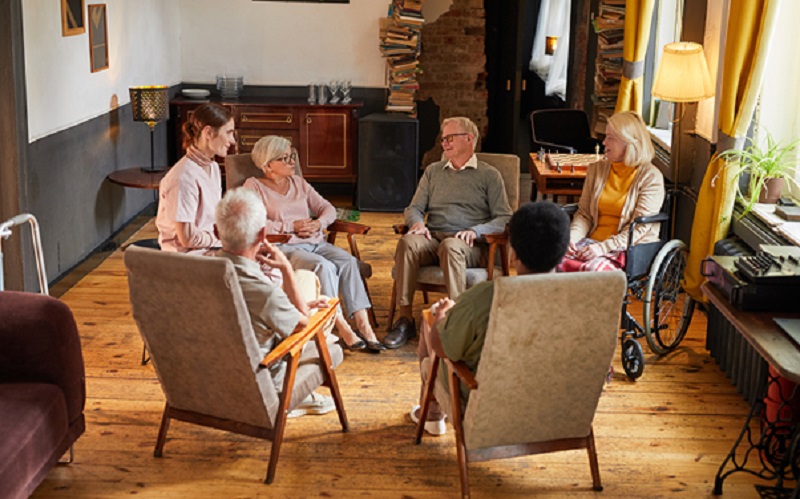Loneliness in old age is not just about being physically alone—it stems from a lack of connection, stimulation, and meaningful interaction. As Singapore’s population ages, there is growing concern about how seniors experience their later years. With longer life expectancy and shrinking family sizes, many older adults find themselves disconnected from the world around them. However, a shift in the senior care landscape is slowly changing this reality.

The Changing Role of the Elderly Care Centre
An elderly care centre today is more than a place for supervision and meals. Increasingly, these centres focus on building social engagement through structured activities, community events, and collaborative environments. Interaction is built into the daily rhythm of life, from group fitness classes to intergenerational visits. This change is vital—research continues to show that sustained social contact plays a key role in reducing mental health issues among seniors.
Addressing Isolation Through Structured Routine
Loneliness can thrive in empty hours. Senior care centres in Singapore are responding with carefully designed daily routines. Activities such as music therapy, light exercise, or crafts are scheduled to create predictability and participation. Routine brings a sense of purpose to seniors’ lives. It also gives caregivers better insight into residents’ well-being, as sudden withdrawal or changes in participation can flag issues early.
Community-Led Programmes Foster Inclusion
Seniors benefit greatly from feeling included in broader community life. Some senior care centre models now partner with neighbourhood organisations, cultural groups, and schools to bridge this gap. Volunteers and visitors are invited to engage with residents through shared meals, performances, or workshops. This external connection breaks the isolation barrier and allows seniors to feel part of something beyond the walls of a facility.
Peer Bonds Within Care Environments
Friendship is possible at any age, and many elderly care environments now make space for peer-to-peer relationships to flourish. Whether through small-group lounges, hobby clubs, or communal dining, seniors are encouraged to relate with one another beyond caregiver interactions. Having others to talk to who understand the ageing experience reduces feelings of invisibility and strengthens emotional support networks.
Promoting Independence and Decision-Making
A loss of autonomy often accelerates emotional isolation. When seniors feel they have no say in their environment or routine, disengagement follows. Today, forward-thinking centres integrate basic decision-making into daily life—choosing meal options, selecting activities, or contributing to group discussions. These small acts of agency help retain identity, which plays a major role in emotional well-being.
Learn More: Which Eldercare Option Is Right for You?
Incorporating Technology Without Isolation
While digital tools are rarely seen as the first solution in senior care, they can enhance communication. Some care centres incorporate supervised use of tablets and video calls so residents can keep in touch with family who may not be able to visit regularly. Others use technology to engage memory or support learning through simple interactive games. When managed thoughtfully, technology can bridge rather than widen the generational gap.
Supporting Mental and Emotional Wellness
Emotional health requires more than distraction. Elderly care providers are starting to integrate professional counselling, mindfulness sessions, and grief support into their services. Growing old brings with it a set of emotional challenges—loss, regret, health concerns—and acknowledging these experiences creates a more holistic form of care. Emotional support reinforces a sense of belonging, validating seniors’ lives and histories.
A Cultural Shift Toward Collective Care
The solution to loneliness in old age is not just better programming; it’s a shift in how society views ageing itself. Senior care is gradually moving from a medical framework to a social one. Facilities are beginning to reflect values of dignity, empathy, and continued contribution. If this trend continues, elderly care in Singapore may evolve into a model that values connection as highly as it does physical safety.
For more information about private nursing homes, contact Orange Valley today.


